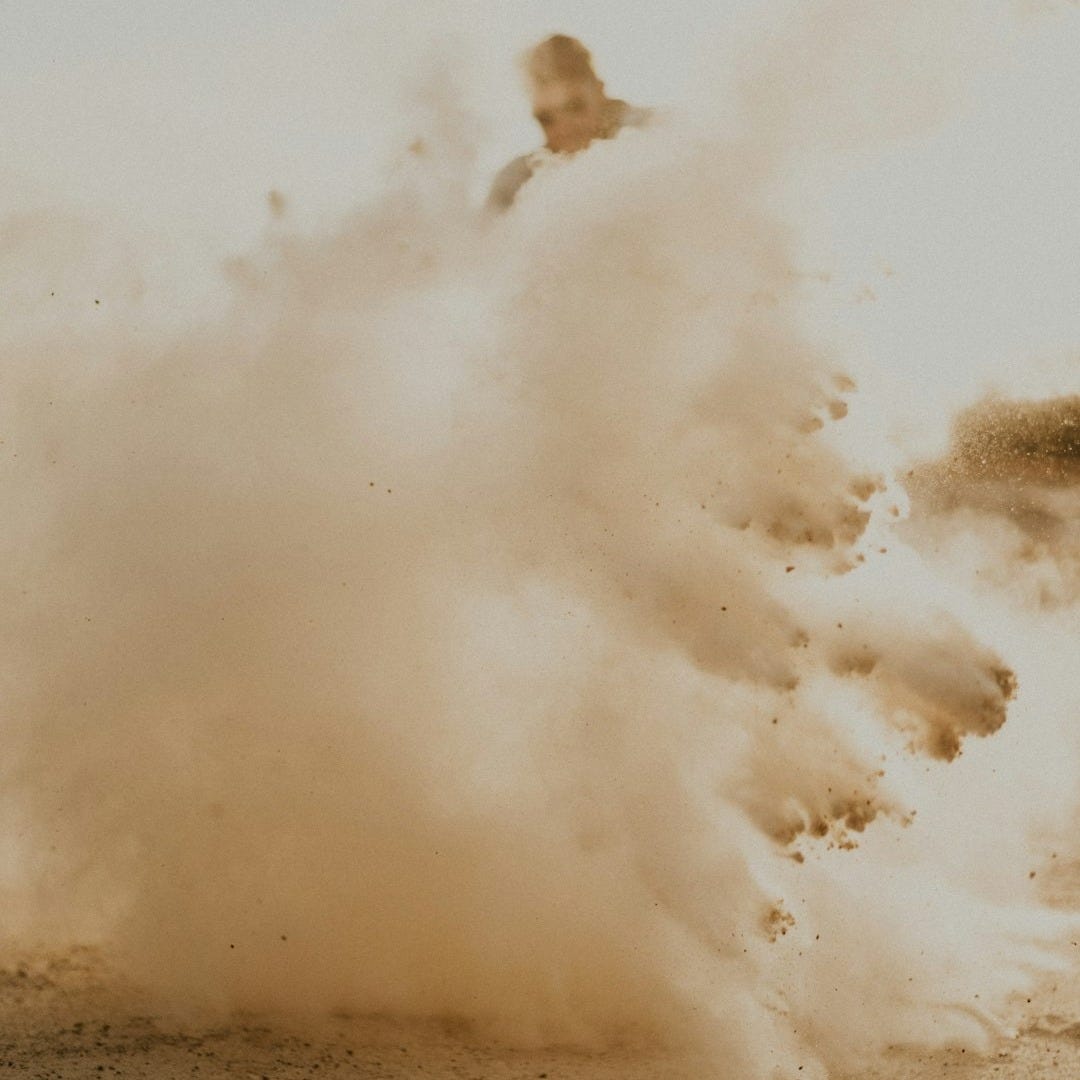Perception is Reality-But What Does That Really Mean?
This isn't about right or left. It is about what happens when we slow down and look closer.
Hello, and welcome to When the Dust Settles.
I’m Taylor Rahe Zingaro, an occupational therapist and stress management specialist, and I’ve created this space to explore the many layers of perception that shape how we understand and interact with the world. In a time when our views are so often polarized, I believe it’s more important than ever to step back and ask: How do we really see things? How do our unique experiences shape our understanding of reality? And most importantly, how can we create space for open, compassionate conversations where we learn from each other, rather than just trying to “win” the argument?
Perception is reality.
You’ve probably heard the phrase “perception is reality,” but it’s often misunderstood. Some people take it to mean that facts don’t matter—that everyone’s subjective truth is just as valid as the next person’s. Sometimes it almost feels like you’re being gaslight to question your entire belief system. That’s not what I’m advocating for here.
What I’m interested in is the idea that how we perceive the world shapes the reality we experience. Our individual perceptions—the stories we tell ourselves, the biases we carry, the experiences that have molded us—inform the way we interact with everything: politics, social issues, even personal relationships. But just because my perception of the world differs from yours, doesn’t mean one of us is “right” or “wrong.” It’s a matter of how we’ve each experienced life up to this point.
In this space, I want to delve into that idea—exploring how perception influences everything from political polarization to personal growth. I’ll draw on philosophy, psychology, and my own experiences as an occupational therapist to offer insights into how our perceptions shape our lives, and how understanding that can help us navigate an increasingly divided world with more empathy, clarity, and understanding.
Why I created this space.
I believe in having difficult conversations without the pressure to conform to rigid ideologies. I believe in fostering critical thinking, empathy, and respectful disagreement. My goal is to create a space where we can talk openly about our differences—without feeling the need to be “right” or “wrong.” Because, at the end of the day, how we see the world is just that: how we see the world. And being open to other perspectives might just be the key to finding common ground.
This isn’t about telling anyone they’re wrong. This is about asking deeper questions and challenging ourselves to think—to examine how our perceptions might be influencing not only our opinions, but also our actions. I want to encourage you to dig deeper, ask questions, and listen not just with your ears, but with your heart.
What to expect from When the Dust Settles.
I’ll be sharing thoughtful reflections on everything from politics to culture, diving deep into the philosophical and psychological layers of perception. We’ll explore how ideological divides form, why some people seem to be “stuck” in a particular view, and how we can bridge those divides by understanding where others are coming from.
Some of the topics I’ll be diving into include:
The Politics of Perception: How media, social media, and personal experiences shape political beliefs—and how to challenge the echo chambers that reinforce them.
The Psychology of Us vs. Them: Why we tend to see others through the lens of “us vs. them” and how to break down those barriers.
Empathy in a Divided World: Why we need to understand and empathize with those who see the world differently—and how to engage in more meaningful conversations.
Critical Thinking vs. Ideology: The dangers of ideological indoctrination and the importance of teaching ourselves and others how to think critically.
Perception and Personal Growth: How to understand and reshape your own perceptions for personal and professional growth.
I’m excited to embark on this journey of exploration with you. I hope you’ll find the content here valuable, thought-provoking, and most importantly, inspiring. If you feel uncomfortable at all, I encourage you to lean in to that feeling.
Why this work matters (To me).
In my work as a NYC-based stress management occupational therapist, I sit with people navigating everything from chronic anxiety to burnout, disconnection, and overwhelm. I use biofeedback to help them tune into their nervous systems—to see what happens in the body when we feel misunderstood, invalidated, unheard, or trapped in a world that feels too loud and too divided.
What I’ve noticed is that it’s not just the personal stressors that wear people down—it’s also the cultural noise. The headlines. The pressure to pick a side. The fear of saying the wrong thing. The deep fatigue of having to defend your views, or worse, being afraid to even voice them. I see how this shapes people’s health, their confidence, and their sense of safety in the world.
That’s why this conversation matters to me—not just as a citizen or thinker, but as a clinician. Because perception is reality in the nervous system, too. And I believe that if we can start to understand the stories we live inside—and the ones we fight over—we might find more clarity, more tolerance, and less stress. That’s the heart of When the Dust Settles.

Join the conversation.
I invite you to subscribe, engage with the posts, and share your thoughts. The goal is to create a space where we can explore these ideas together, where everyone’s perception is welcome and respected, and where we can learn from each other without the need for debate or division.
Thank you for being here, and I look forward to this conversation



